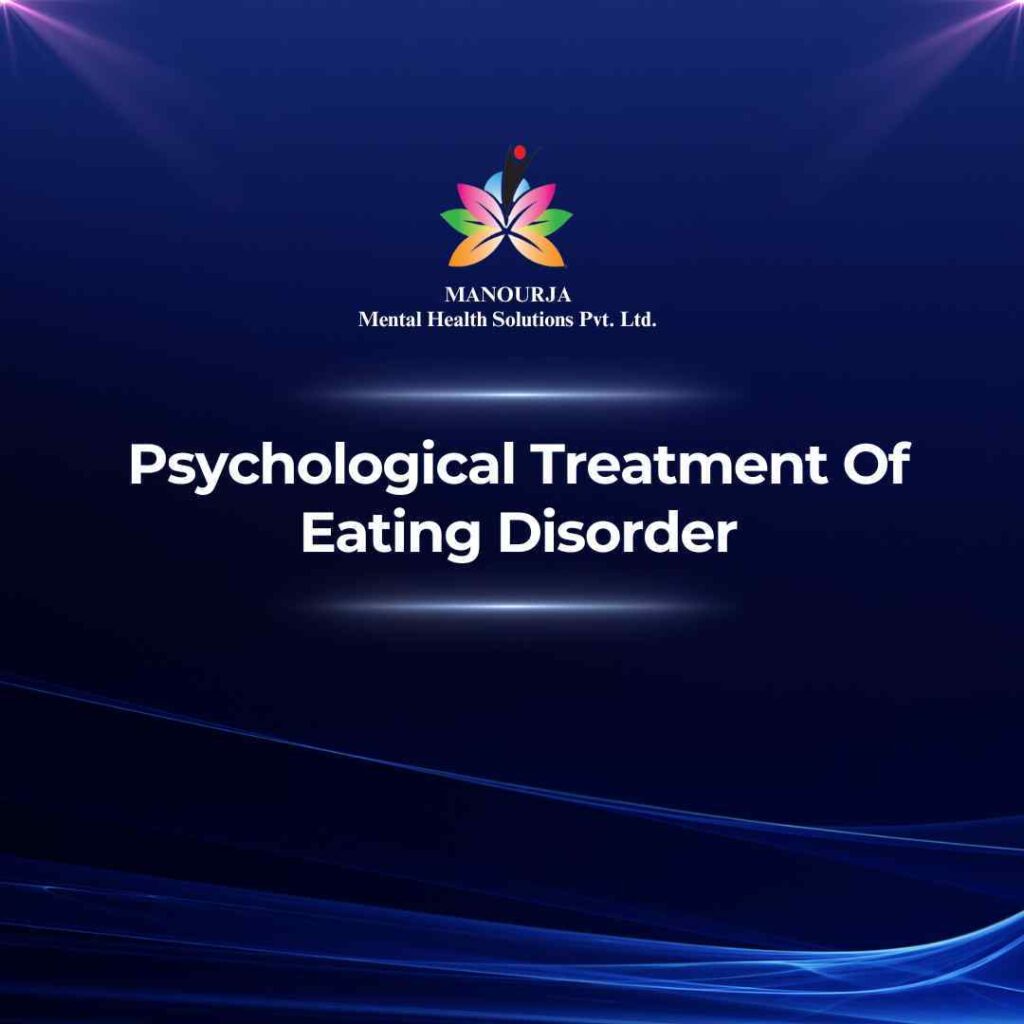Psychological Treatment of Eating Disorder

Psychological treatment is central to the effective management of eating disorders, addressing the underlying emotional and cognitive issues that contribute to these conditions. Various therapeutic approaches can help individuals recover by improving their eating habits, altering destructive thoughts and behaviors, and treating any co-occurring psychological issues. Here are some of the key psychological treatments used for eating disorders:
Cognitive Behavioral Therapy (CBT)
CBT is the most widely used and evidence-based treatment for eating disorders, particularly effective for bulimia nervosa and binge-eating disorder. It focuses on identifying and changing distorted thinking patterns and unhealthy behaviors:
- For bulimia and binge-eating disorder: CBT helps patients challenge binge-purge cycles and the dysfunctional beliefs about weight, body shape, and dieting. It involves monitoring eating behaviors and developing healthier eating habits.
- For anorexia nervosa: CBT is adapted to address fears about weight gain and distorted body image. It also involves nutritional counseling to establish regular eating patterns and gradually increase food intake.
Family-Based Therapy (FBT)
Also known as the Maudsley approach, FBT is particularly effective for adolescents with anorexia nervosa. This therapy actively involves family members in the treatment process, with the primary aim of transferring control over eating from the therapist to the family, and ultimately, back to the patient. The family is taught how to help the patient eat more appropriately while addressing underlying family dynamics that may contribute to the disorder.
Interpersonal Psychotherapy (IPT)
IPT is a treatment approach that focuses on interpersonal issues which are believed to contribute to the development of eating disorders. It helps patients improve their communication skills and change how they relate to others, thus resolving problems that involve interpersonal disputes or role transitions that may underlie eating behaviors.
Dialectical Behavior Therapy (DBT)
Originally developed for borderline personality disorder, DBT has been adapted for treating binge-eating disorder and bulimia nervosa. It focuses on teaching skills in: mindfulness, distress tolerance, emotion regulation, and interpersonal effectiveness. DBT helps patients better manage their emotions and impulses, understand and tolerate distress, and improve relationships with others.
This therapy explores the underlying emotional conflicts that may be contributing to the eating disorder, such as unresolved grief, interpersonal conflicts, and poor self-esteem. It helps patients understand and work through these unconscious feelings, which can drive their harmful eating behaviors.
Group therapy provides a supportive environment where individuals can share experiences, challenges, and successes with others facing similar issues. This can reduce feelings of isolation and provide motivation during the recovery process.
Therapies such as art therapy and dance/movement therapy allow individuals to express their thoughts and feelings in non-verbal ways, which can be particularly helpful for those who find it difficult to articulate their emotions and experiences.
Nutritional Counseling
Though not a psychological treatment per se, nutritional counseling is often included in the treatment regimen for eating disorders, providing education about proper nutrition and directly addressing maladaptive eating behaviors.
Each treatment approach can be tailored to meet the individual’s specific needs, often involving a combination of therapies to effectively address the complex nature of eating disorders. Continual assessment and adjustment of the treatment plan are necessary to ensure it meets the changing needs of the patient as they progress in recovery.
At MANOURJA, we believe in the transformative power of counseling. Our experienced therapists offer a safe and supportive space where you can explore your thoughts, emotions, and challenges. Through personalized counselling sessions, we’ll work together to develop coping strategies, build resilience, and achieve lasting positive change. Discover the path to a healthier, happier you with MANOURJA counselling services.
MANOURJA Rehabilitation Services
At MANOURJA, we’re dedicated to helping you in rebuild your life, after difficult times. Our rehabilitation services focus on understanding what you need to move forward, whether you’re recovering from addiction, trauma, or any psychological – social challenges. We create personalized plans, that are all about helping you, regain your strength and find hope again. With a caring team by your side, you’ll have the support to make real progress and take steps toward a brighter, healthier future.
